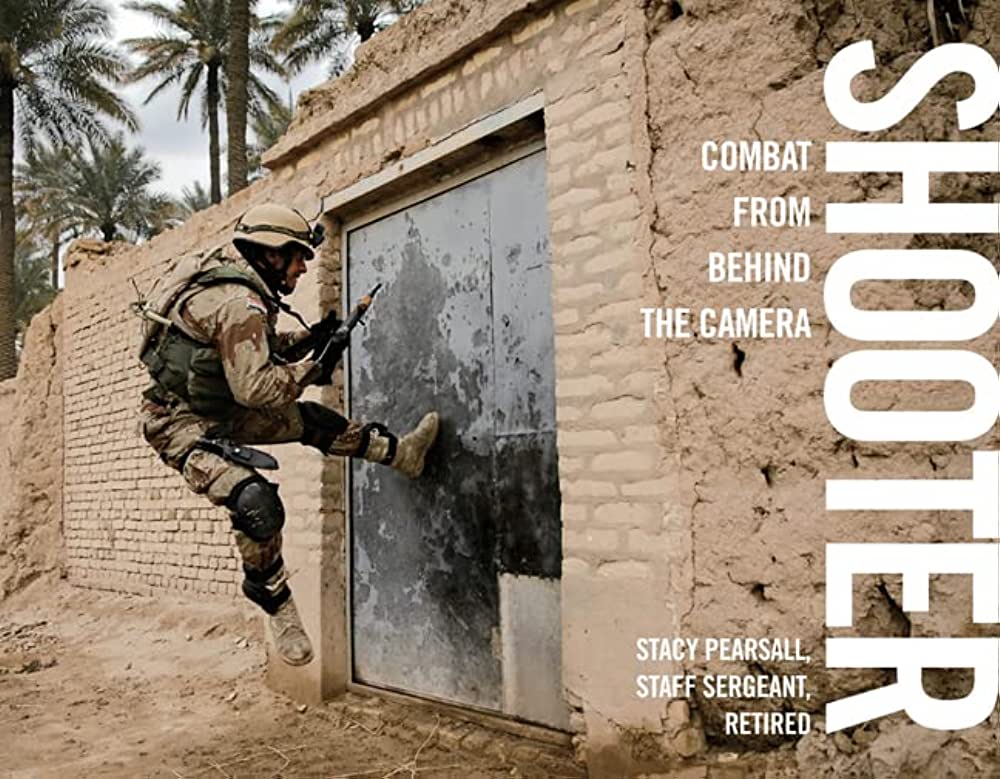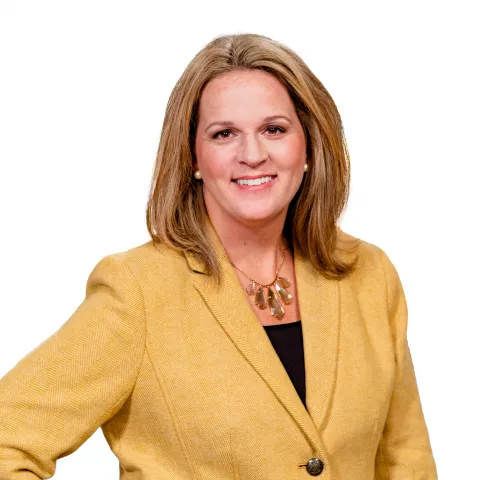In a recent episode, Holly Jackson is "By The River" with award-winning author and photographer Stacy Pearsall discussing her book, Shooter. Stacy shares the meaning behind her book and her experience in her final years of war. Holly learns about the struggles that come with war and the mental toll it has in the years that follow. Read below for an excerpt of their conversation.
Tell us a little bit about what this book's about and why it came to be.
Shooter is basically the bookend to my military career. I spent roughly 10 years as a military photographer and the latter part of my career as a combat photographer specifically which took me all over the world. And on my last tour was Iraq, which was full of a lot of various experiences, some not so great. And when I came home I kind of put the pictures away and tried to put the memories away, but I couldn't. I found one way to help resolve part of that was to bring the pictures back up, kind of go through my journals that I had taken while I was in combat, and sort of systematically and sort of cathartically go through these pictures and put them together in into a book. That is basically a way for me to close that chapter of my life.
Tell me the challenge there is because you know me with tv I'm used to video those moving pictures but when you were talking still photography you're trying to tell a whole story in one frame. Talk about the challenges of that and how you pick that one frame to tell the story.
Well, I think still photography can be a challenge just like you had articulated. It's, you have to be able to tell everything in one frame and walking into situations where you don't have any control. Combat being one of them. For me, in this example Shooter, you have to be able to be situationally aware enough to not get yourself hurt or are those around you hurt. But situationally aware enough to know where the picture's going to take place and where that action's going to take place. Get out in front of it as much as you can and let the action kind of happen through it. And be experienced enough with the camera to know all the fundamental stuff like the is O, the F stop the shutter speed and timing and moment and expression and color and light, and hope that all of those come together in that one, 1000th of a second. Right, that you click the shutter.
There's some tough stuff in here to see. Is there anything that you left out and if so, why?
That’s a great question. I often get asked what my favorite photographs are and honestly, they're not in this book and they're not particularly great either. I think I left those for the loved ones of the fallen. And it's the pictures of those who sacrificed everything in war that I cherish most. They are the last living pictures of these heroes. And I, I think those are the ones that mean the most.
Tell me about the therapeutic part of just picking the photos compiling the photos, putting them, you know figuring out where they're going to go, and the stories the part of the story that you're going to share. What, did that do for you mentally, and emotionally?
I think there were still some things that I hadn't really quite processed. Part of that is acknowledging grief of sort of going through some of the unchecked emotions. I think there's a lot of things that we tend to push down for the sake of getting through the day in combat. And a lot of those resurface and a lot of those for me personally, are tied to each and every still frame that you see in this book from the smell, the actions the sounds, all of those are kind of attached to each picture, and the feelings. So, for me, going through my archives and saying, okay this was important for me to share emotionally they may not be the best photos that I've taken, but for me there are emotions tied to them. And a part of that was, again, acknowledging that putting it into a book and again, bookending those. And there's a lot of crying, I'm not going to lie. Yeah. A lot of anger and just again, these emotions that had been unprocessed that were coming through when I was putting this book together.

Besides healing for yourself, who is this book written for?
You know, it's, it's funny because when I started on Shooter it was never about a target audience. It was about getting myself healthy or at least starting down the path. And I didn't know just how therapeutic it would be for others, particularly for those who've been to Iraq, right? Who went through the book, and they were like, oh man this really resonates with me. Or this brought up a lot of feelings that I haven't felt in a long time. It was also a tool for therapists, some of them to have this book on their table to allow some of the folks that they were working with through post-traumatic stress to be able to visualize and have a better visual understanding of what we went through and maybe perhaps the words that they couldn't find The veterans that are working through these things, the vet the words that they couldn't find were better articulated in the through pictures. Now there are pictures and words in this book, but I think for some of us, pointy talkies can be a lot, a lot easier.
How would you sum up your time if you had to, you know just kind of give someone the 15-second rundown of your experience overall and what it was for you, how would you describe it?
If I could simmer it down, it would be 50 minutes of boredom, punctured by 10 minutes of sheer terror.
How many pictures do you think you took a day?
I know in the end I had about 500,000 images that I've taken. Well maybe a combat camera may have been a little bit more than that, but my combat deployment's around roughly 500,000.
And to bring it down, you know, the book's thick, but whenever you give me that number of images, how do you bring it down to that to tell the story? How did you decide what makes the cut?
Well, luckily This was just one deployment so that made it all little easier down a little easier. Sure. And I, and again I think I wanted, to share a certain, I guess Part of that life and wanted to make people know that it wasn't just about the times that the bullets were flying. Yes. Combat is bullets flying. It is that 10 minutes of sheer terror but there are the 50 minutes where you bond with perfect strangers. You put your life in their hands, and they put theirs in yours. And those times are filled with laughter, with grief with the mundane. And those moments, I feel are lost on the majority of people because it's those moments that bind us so tightly together that we would fall on our own sword to save another person's life. And Stacy, we've talked about so much during the show about mental health and about, you know therapy and healing and PTSD. These are things that aren't always talked about in this field.
Do you feel like it's part of your mission to make that commonplace to speak of it? And if so, why?
Absolutely. And I think it all starts with my own experience because when I came home after getting injured in Iraq I had a lot of things emotionally that I hadn't dealt with yet. And that was delaying my ability to physically heal from my injuries. And it always baffles me why it's so taboo to talk about mental health in the first place because we will openly talk about what ails us physically but it stops there when it comes to emotions. But we all have something emotional that we've gone through in life, whether that's postpartum after giving birth, or perhaps we lost a loved one or an animal we care about that touches us emotionally. And maybe we have a hard time recuperating from that. So why not have the tools to be able to talk about it? And you know at some point we have to be able to express that whether that's through words, pictures, conversations, or finding ways to help ourselves find the tools to carry that with us in a way that it's not going to burden us so much that we end our lives. Because I want to talk about suicide for a second. I recently lost a fellow combat photographer and friend to suicide. And that was just on the heels of another combat photographer friend of mine who killed herself. At some point, it has to stop. And we can't do that unless we talk about it openly. And we can't do that unless we support each other in having those uncomfortable conversations. So, it all starts with this talking.


